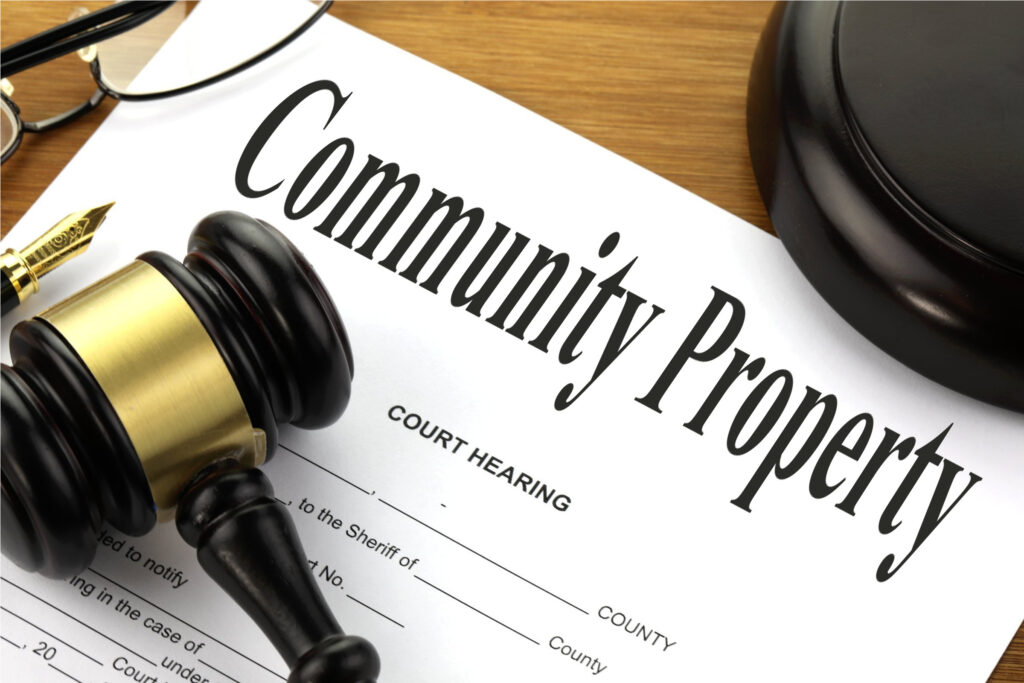 When I first started my journey as an estate planning attorney, I remember sitting down with a couple who had just purchased their dream home together. When I brought up the topic of estate planning, they looked at me, puzzled. “We don’t need an estate plan,” they said confidently. “Both our names are on the deed.”
When I first started my journey as an estate planning attorney, I remember sitting down with a couple who had just purchased their dream home together. When I brought up the topic of estate planning, they looked at me, puzzled. “We don’t need an estate plan,” they said confidently. “Both our names are on the deed.”
That moment sparked a realization for me – many people share this common belief. While holding title jointly can offer certain advantages, it does not eliminate the need for a comprehensive estate plan. In this blog I will share my insights about the different ways to hold title in Arizona, the implications of right of survivorship, the intricacies of community property rights, and the important tax ramifications associated with these arrangements. [Deed]
How should you hold title in Arizona? (4 ways)
In Arizona, there are several ways to hold title to real property, each with its own legal requirements and consequences.
1 – Joint Tenancy with Right of Survivorship
In Arizona, joint tenancy is a form of property ownership where two or more individuals hold title to a property together with equal rights and interests. Joint tenancy requires the presence of four unities–unity of time, title, interest and possession. All joint tenants must acquire their interest in the property at the same time. All joint tenants must hold the title under the same deed or legal document. All joint tenants must have equal interests in the property (e.g., each owns a 50% share if there are two joint tenants). All joint tenants have equal rights to possess and use the entire property.
Joint tenancy can be created through a deed that explicitly states the intention to create a joint tenancy with right of survivorship. If the deed does not specify this, the default ownership is typically tenancy in common, where each owner has a distinct share that can be passed on according to their will.
One of the defining features of joint tenancy is the right of survivorship. This means that upon the death of one joint tenant, their interest in the property automatically passes to the surviving joint tenant(s) without going through probate. This transfer occurs by operation of law. However, it doesn’t account for any specific wishes the deceased may have had. For example, if one partner had children from a previous relationship and wanted them to receive a portion of the property, that wish may never come to fruition without an estate plan.
From a tax perspective, joint tenancy can have implications as well. When one owner passes away, the surviving owner receives a step-up in basis only for the deceased owner’s half of the property. This means that if the property has appreciated significantly, the surviving owner may face capital gains taxes on any future sale of the property.
 2 -Tenancy in Common
2 -Tenancy in Common
In this arrangement, two or more individuals hold title to a property, but their shares can be unequal, unlike joint tenancy. If one owner dies, their share does not automatically go to the other owner(s) but is instead passed on according to their will or state intestacy laws to their heirs. This can lead to complications and family disputes, which I have seen tear families apart over disagreements about what to do with a shared property.
Tax-wise, tenancy in common allows for each owner to receive a full step-up in basis upon their death. This means that if one owner passes away, their heirs could sell their share without incurring capital gains taxes based on the original purchase price, which could be advantageous in certain situations.
3 – Community Property
Arizona is one of nine states that recognizes community property. Community property refers to the legal principle that most assets and debts acquired by either spouse during marriage belong equally to both spouses, regardless of whose name is on the property. This means that upon divorce, these assets and debts are typically divided 50/50 unless there is a valid prenuptial agreement or another legal exception.
Navigating community property rights can be tricky in Arizona. The surviving spouse usually inherits their half, but what happens to the deceased spouse’s half? Without an estate plan, it may pass to their heirs according to state laws, which may not align with the couple’s wishes and may require probate.
4- Community Property with Right of Survivorship
 In the 1990s, Arizona lawmakers introduced a new form of property ownership for married couples known as “community property with right of survivorship.” Previously, spouses in Arizona typically held real estate either as “husband and wife” or under “joint tenancy with right of survivorship.” Holding property as husband and wife or as community property often required probate, while joint tenancy with right of survivorship could result in unfavorable tax consequences for those with substantial assets as discussed above. The introduction of community property with right of survivorship addressed both issues, making it a preferred method for married couples to hold real estate in Arizona.
In the 1990s, Arizona lawmakers introduced a new form of property ownership for married couples known as “community property with right of survivorship.” Previously, spouses in Arizona typically held real estate either as “husband and wife” or under “joint tenancy with right of survivorship.” Holding property as husband and wife or as community property often required probate, while joint tenancy with right of survivorship could result in unfavorable tax consequences for those with substantial assets as discussed above. The introduction of community property with right of survivorship addressed both issues, making it a preferred method for married couples to hold real estate in Arizona.
This hybrid method combines the benefits of community property and joint tenancy. Both spouses share ownership, and upon one spouse’s death, the other automatically inherits the entire property—bypassing probate. Community property with right of survivorship receives a full step-up in basis for the full property upon the death of one spouse. This can be a significant advantage when it comes to minimizing capital gains taxes for the surviving spouse. It’s a great solution for many couples, but it still doesn’t account for specific wishes that might come into play, especially if either spouse has children from a prior relationship.
Make sure your title to your home and your estate plan work together and align with your wishes.
Reflecting on my early days as an attorney, I realize how important it is to have these conversations about estate planning. Simply having both names on a deed doesn’t provide the comprehensive protection that a well-thought-out estate plan offers. You want to ensure your wishes are honored and your loved ones are cared for.
If you have recently purchased property with a partner or spouse, consider taking the time to discuss your estate planning needs, including the potential tax ramifications of your ownership structure. It’s a conversation that can save you and your loved ones from unnecessary stress and heartache down the road. As a mobile estate planning attorney, I’ll come to you. Schedule an appointment today to discuss your estate planning needs by clicking below.

